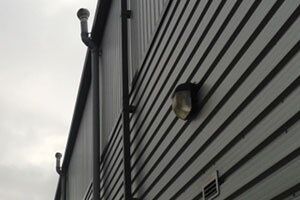Using our in-house drilling services we are able to install dedicated gas monitoring equipment, with subsequent monitoring by our infra-red analysers, together with an array of other specialist equipment. The assessment of ground gas concentrations and flow rates is then built upon a sound appreciation of the prevailing ground conditions, ground gas regime, hydrogeology and the data available.
Our advice to clients is to conduct spot monitoring on potential ground gassing sites and to derive other important ground information that can be obtained from purge recovery testing, total organic compound testing of the soil matrix to put together lines of evidence for classification of the site in accordance with CIRIA C659. In certain circumstances we would advocate the use of in-situ Gas Clams to obtain a more complete dataset or to validate removal of pathways or sources.
We have developed models for ground gas migration and have in the past pioneered the use of the precursor to the Gassim model (and its algorithms) to assess risk posed to properties near to active ten landfill sites. The study, conducted for the Environment Agency, allowed for a risk based management system, including remedial contingency measures to be implemented.
Several of our staff have also been involved in the formulation of guidance on the investigation of ground gas investigations and assessment and have pioneered the use of quantitative risk assessment modelling when most practitioners routinely used generic standards such as Building Regulations threshold values.
As part of our service we regularly liaise with the Environment Agency and Local Authority Contaminated Land Officers to jointly agree upon the ground gas investigation strategy, remedial design and ultimately satisfactory discharge planning conditions.


